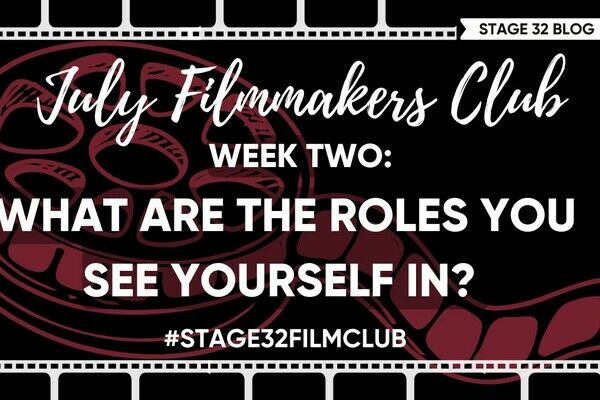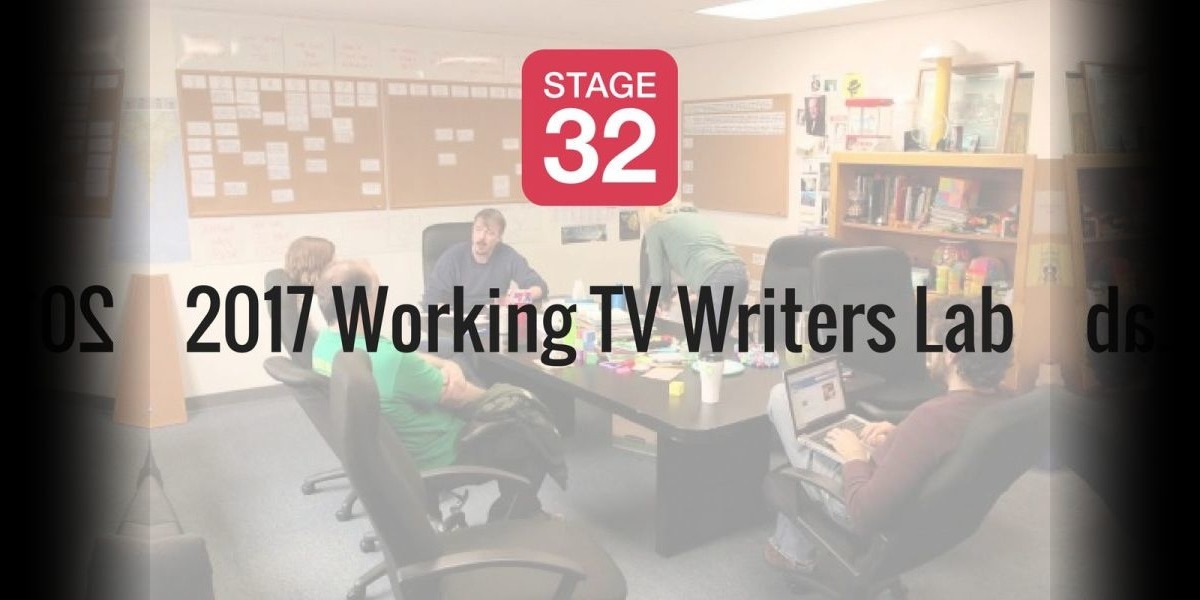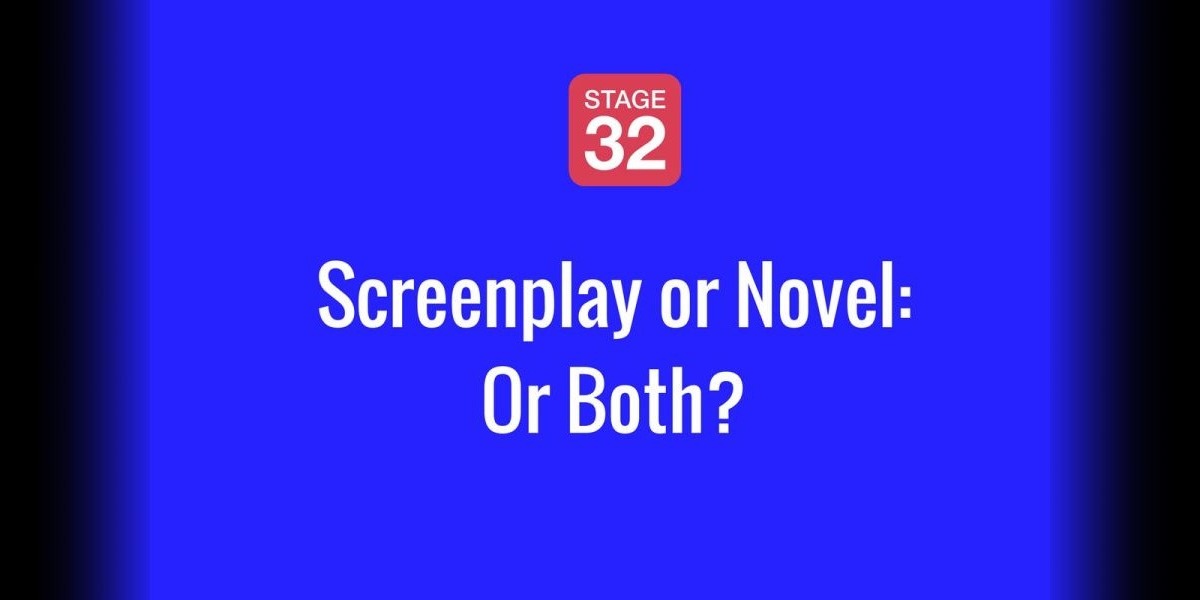Screenplay or Novel: or Both?
I don’t believe that jumping genres should be avoided simply because someone out there in cyberspace said you shouldn’t do it. I converted novels into screenplays, and screenplays into stage plays, with pretty good contest results and, if nothing else, it was a lesson and … fun.
I say, if you have the passion to write, then write. If it’s a screenplay I would opt for simplicity and consistency over complexity and inconsistency. In a novel, stick with plot and structure and do whatever the hell you want. In either case, Picasso had good advice: “Learn the rules like a pro, so you can break them like an artist.”
“Learn the rules like a pro, so you can break them like an artist.” - Picasso
For me, I try to follow a couple of rules. First, it’s paramount for me to illicit emotion from the reader or viewer. I’ll try my best to make the reader fall in love with a character. In novel writing I can take my time. I’m not restricted to a page length. In a screenplay I am.
And, second, I try to create a tangible goal for the hero and set him or her on an edge-of-your-seat journey where we can measure the success or failure of that goal at the climax point.
I learned early on, whether writing a screenplay, novel, or stage play, I needed to follow a process, and some rules. This idea of storytelling was taught many years ago, not by a writer, but by a philosopher, physician, scientist, and a student of Plato. Aristotle said, and I believe it to be true, that ‘The first essential, the life and soul, so to speak, of a story, is the Plot.'
"The first essential, the life and soul, so to speak, of a story, is the Plot." - Aristotle
I struggled with this notion for a long time. Not to dwarf other important tools of writing such as, dialogue, format, character arcs, and inner journey versus outer journey, etc., structure is what makes a story, a story. If we could master it in our fables, I believe the fear of jumping genres would be just that, a fear that we could overcome with education and go on our own inner journey and just plunge into the belly of storytelling. Of course, it’s not as easy as that.
Growing up in the ‘50s and ‘60s I always had that hankering to write ‘the great American novel’. Today, when I talk to writers, I usually hear their desire to write ‘the great American screenplay’. So, if you decide not to ‘jump’ from screenplay to novel, fear not. Very few are taking the plunge these days. But if you do it, take comfort in knowing you are among the few who are.
Nevertheless, the passion to write for any genre, whether it be for novels, screenplays or stage plays, requires the same dedication of knowing the craft of writing; it’s just the nuances of each method that needs to be studied and mastered. It’s like going from algebra to calculus. Both require a solid knowledge of basic math, but each has its own format or disciplines, which are not hard to master. But without the basics, you’ll struggle with both.
Even though some pundits tells us to stick with one genre – the one we know or like the best – I broke away from that advice. I wrote my first novel in 1977 with a profound passion to tell a story, but I harbored a secret. I believed that movies provided the greatest power to move the spirit than all other writing mediums.

My life was never the same after seeing “Inherit the Wind”, which was first published as a stage play in 1955, and “12 Angry Men”, which was first a television play in 1954, and “I Accuse”, which was a book before Jose Ferrer made it a movie, and “One Flew Over the Coo-Coos Nest”, which was a novel before Jack Nicolson decide to shine in it.
Even my favorite love story, “Somewhere in Time”, was released five years after its source novel titled "Bid Time Return". That title, by the way, was borrowed from a line in William Shakespeare's play "Richard II", which reads: "O call back yesterday, bid time return."
It’s not surprising that after I wrote that first novel I tried transferring that story to a screenplay, and I couldn’t understand why I had such a difficult time in crowding my 300 page (double-spaced) novel into a properly formatted screenplay.
I wasn’t restricted by format or page length when I wrote the notorious Beginning (Act I), Middle (Act II) and End (Act III) of my first novel. Each has its virtues, but let’s just say I could take my time getting the reader excited and thirsting for more, or maybe even crying at the end – happy tears, of course - but in the end the tears were for someone the reader has grown to love because (spoiler alert) … he died.
In a screenplay I had to fit that story-line into a 120 page screenplay, and with a lot of ‘white space’. I couldn’t do it effectively.

The novel was painless in a way because I worked for AT&T and the story was about two guys who worked for a fictitious phone company during the midnight tour and who wreaked havoc on those unsuspecting people who happened to talk on their phones at night. Knowing the nuances of the phone company, and having worked the midnight tour for a few years, I knew what I was writing about, and creating the story line was relatively easy - for the book, that is.
I was told that writing a screenplay was even easier, and all I needed to know was the basics of writing a sentence, or action lines. I wasn’t aware I had to write dialogue more like Hemingway than Charles Dickens. Well, having finished my last semester of college where I collected a BA in English at FDU, I felt I had all the tools I needed to write my first screenplay. Wow. I was in for a rude awakening.
I became aware of my inadequacies as a writer when I took a two-day seminar given by a guru in the industry. I learned about ‘the new situation’ that should happen 10% into the story. Each turning point had its influence on me as I learned about the ‘change of plans’, ‘the goal setting’, and ‘the Point of No Return’. A major setback occurs at the 75% mark where the hero goes on a fast-paced journey to the ‘climax’ and wraps things up to the feel-good point of that journey.
This pundit had an influence on me, and after the seminar I tried my hand at writing the screenplay that I had such a difficult time with, and the once-difficult-task became effortless.
I also had to manage a family during this time, so it’s not surprising I waited until I retired in 1998 to write full-time. I became much more prolific than I anticipated, using that structure I had learned, applying it to 2 other novels, 3 stage plays, 11 screenplays, and a non-fiction work that was a memoir of a Pakistani freedom fighter. There was only one non-fiction book that I didn’t use this method because it required a chronological approach rather than a thematic one.
Feedback became an important element to my writing. Professional readers are one way to get that feedback, but it’s expensive, as is contests. Still, I don’t think I would’ve finished finalist or better in over 150 writing competitions since retiring if I hadn’t gone to that seminar. In fact, I’ve won 23 writing competitions since the year 2000, mostly for my screenplays and stage plays.
I had the winningest screenplay on moviebytes.com for the longest time. I taught screenwriting at the local community college and I was a screenplay judge for the Temple University senior film project for a few years. Again, I hang the idea that learning plot or structure was the key to the little success I have attained as a writer.
Once I realized I could only dazzle some of the people some of the time in writing contests, I began reading other scribes’ work more regularly. I wasn’t surprised to find out there were plenty of screenwriters who were better than I. But I’m reminded by what Derek Jeter the famous Yankee baseball player once said: “There may be people that have more talent than you, but there’s no excuse for anyone to work harder than you do.”
“There may be people that have more talent than you, but there’s no excuse for anyone to work harder than you do.” - Derek Jeter
So, I continued writing, and I found ways to get noticed. I found my niche and jumped genres, even though the advice from the experts was to stick with one, the one that you’re passionate about. If nothing else, I learned it was critical to understanding the nuances of other mediums.
I also learned if I wrote with the knowledge of structure I could mount a credible story in any medium, and be a good writer regardless if I had credible run-on sentences (Charles Dickens), or lean dialogue (Ernest Hemingway), or romantically inclined characters (Jane Austen), or converted novels into screenplays (and stage plays), or screenplays into novels (me), or ended sentences with a prepositions (also me).
My first attempt in writing “South of Main Street” was a decade ago, and it was with a subsidy press that went bankrupt before any marketing muscle could be flexed. I sat on the pity-pot for about ten minutes, and then I began writing a screenplay version by the same name and theme, which won the very first contest I entered it in.
Recently, I re-wrote the novel “South of Main Street”, and now in 2016 a trade publisher has provided an e-book and paperback version of the novel on amazon.com. Soon, hopefully, it will be in B&N bookstores. I consider that a measure of success.
I’m reminded, occasionally, what Michael Jordon once said. “I’ve missed more than 9,000 shots in my career. I’ve lost almost 300 games. I’ve been trusted to take the game winning shot and missed 26 times. I’ve failed over and over and over again in my life. And that is why I succeed.”
“I’ve missed more than 9,000 shots in my career. I’ve lost almost 300 games. I’ve been trusted to take the game winning shot and missed 26 times. I’ve failed over and over and over again in my life. And that is why I succeed.” - Michael Jordan
Taking encouragement from the best of the best, I continue searching for new ways to write better. My passion to write, of course, is probably the key. And, if Sheldon Cooper’s mother was here, she would say, ‘And that’s your opinion’.

About Robert Gately
I retired early from AT&T in 1998 to do what I always promised myself I would when retiring; that is, write. Since then I've written 2 novels, a non-fiction book about a South Asian freedom fighter, 10 screenplays and 3 stage plays – all since 1998. As a body of work, I have been recognized as finalist or better in over 100 theatre, book and screenplay competitions around the world which include novel successes in Norumbego Fiction Award, Dana Awards, Frontiers in Writing, SFWP (Santa Fe), First Coast (Jack’ville), etc. The screenplays alone have won 16 contests (Woodshole/Garden State/Queens/Telluride/Spirit Quest Film Festivals, Fade In Magazine, etc.). Also, these scripts came in second place – first runner up - in 14 other competitions (Breckenridge, Pocono and Phoenix Film Festivals, etc). My stage plays won a reading series at Abingdon Theatre in NYC and Ohio State University and, more recently, a play I co-wrote with Drew Keil has won the stage play category in both the London Film Awards and the American Movie Awards. I taught adult education at Northampton County Community College in screenwriting, and I was Temple University screenplay judge in their undergraduate program (Freese Award).
Like this blog post? Please share it on social media (Facebook, Twitter, LinkedIn, email etc) by using social media buttons at the top of the blog. Or post to your personal blog and anywhere else you feel appropriate. Thank you.
As always, we welcome thoughts and remarks on ANY of the content above in the Comments section below...
| 4 Benefits of Having a Collection Account on a Film or TV Production |
| The 2017 Working TV Writers Lab |
Search Stage 32 Blog
There are now 3542 blog posts for you to enjoy. Search them all by tags below.
Acting, Advice, Cinematography, Coffee & Content, Composing, Contests, Distribution, Featured, Filmmaking, Financing, Inspirational, Networking, Producing, Screenwriting, Success Stories, Tips, Trending,Relevant Tags
Recommended Articles

Stage 32 Presents: To Stream or Not to Stream... That is the Distribution Question

Celebrate the July 2024 Stage 32 Community’s Successes!

15 Powerful Tips to Embrace Abundance in Your Creative Journey

July Filmmakers Club Week 2: What Are The Roles You See Yourself In?

Stage 32's August 2024 Education Schedule!

The Tools Needed To Be A Content Creator!

How To Make Deals in Hollywood Without Getting Hustled

The Importance Of A Production Coordinator On Your Productions

How Independent Filmmakers Build & Manage Their Relationships






